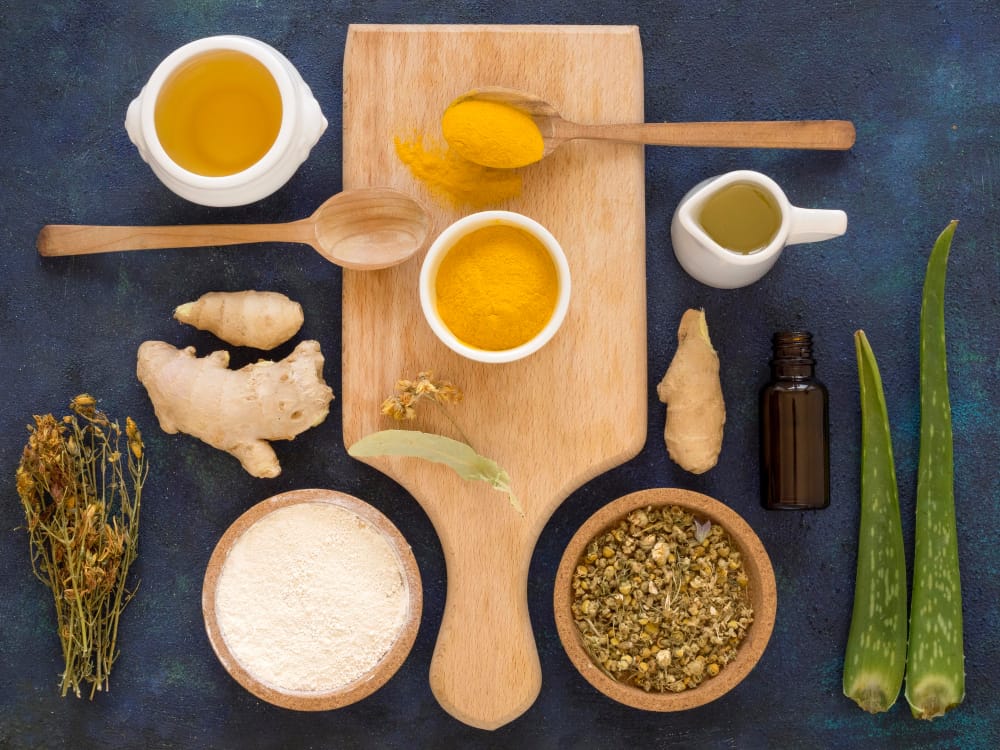Natural Pain Relief: Herbal Remedies
Pain is an inevitable part of life, whether it's a headache, muscle soreness, or chronic discomfort. While over-the-counter medications can offer relief, many people seek natural alternatives. Herbal remedies have been used for centuries to alleviate pain and promote healing. In this blog post, we'll explore some of the most effective herbal remedies for natural pain relief.
1. Turmeric
Benefits: Turmeric contains curcumin, a compound with powerful anti-inflammatory properties. It's particularly effective for joint pain and arthritis.
How to Use: Add turmeric powder to your meals, drink turmeric tea, or take curcumin supplements. For better absorption, combine it with black pepper.
2. Ginger
Benefits: Ginger is known for its anti-inflammatory and analgesic properties. It's helpful for muscle pain, menstrual cramps, and headaches.
How to Use: Drink ginger tea, use fresh ginger in cooking, or take ginger supplements. You can also apply ginger oil topically for localized pain relief.
3. Willow Bark
Benefits: Willow bark contains salicin, a natural compound similar to aspirin. It's effective for back pain, osteoarthritis, and headaches.
How to Use: Brew willow bark tea or take it in supplement form. Always follow the recommended dosage to avoid side effects.
4. Capsaicin
Benefits: Capsaicin, found in chili peppers, helps reduce pain by depleting substance P, a neurotransmitter that sends pain signals to the brain. It's used for nerve pain and arthritis.
How to Use: Apply capsaicin cream to the affected area. Start with a small amount to test your skin's sensitivity.
5. Arnica
Benefits: Arnica is renowned for its anti-inflammatory and pain-relieving properties. It's particularly useful for bruises, sprains, and muscle soreness.
How to Use: Apply arnica gel or cream directly to the skin. Avoid using it on broken skin.
6. Devil's Claw
Benefits: Devil's claw is a plant native to southern Africa, known for its anti-inflammatory and pain-relieving effects. It's beneficial for back pain, arthritis, and tendonitis.
How to Use: Take devil's claw in supplement form. Consult with a healthcare provider for the appropriate dosage.
7. Boswellia
Benefits: Also known as Indian frankincense, boswellia has strong anti-inflammatory properties. It's useful for chronic inflammatory conditions like arthritis.
How to Use: Take boswellia supplements as directed. Ensure the supplement contains at least 30% boswellic acids for effectiveness.
8. Peppermint
Benefits: Peppermint oil contains menthol, which has a cooling effect that can soothe sore muscles and tension headaches.
How to Use: Apply diluted peppermint oil to the affected area or inhale peppermint steam. Never apply undiluted oil directly to the skin.
Tips for Using Herbal Remedies
- Consult with a Healthcare Provider: Before starting any herbal remedy, especially if you have existing health conditions or are taking other medications.
- Start with Small Amounts: Test for any allergic reactions or sensitivities.
- Buy High-Quality Products: Ensure they are from reputable sources to avoid contamination.
- Follow Dosage Instructions: More is not always better, and excessive use can lead to adverse effects.
Conclusion
Herbal remedies offer a natural alternative to conventional pain relief methods. Whether you're dealing with chronic pain or occasional discomfort, herbs like turmeric, ginger, and willow bark can provide soothing relief. Remember to consult with a healthcare provider before starting any new treatment, and enjoy the natural benefits of these time-tested remedies.




